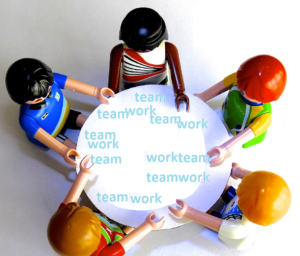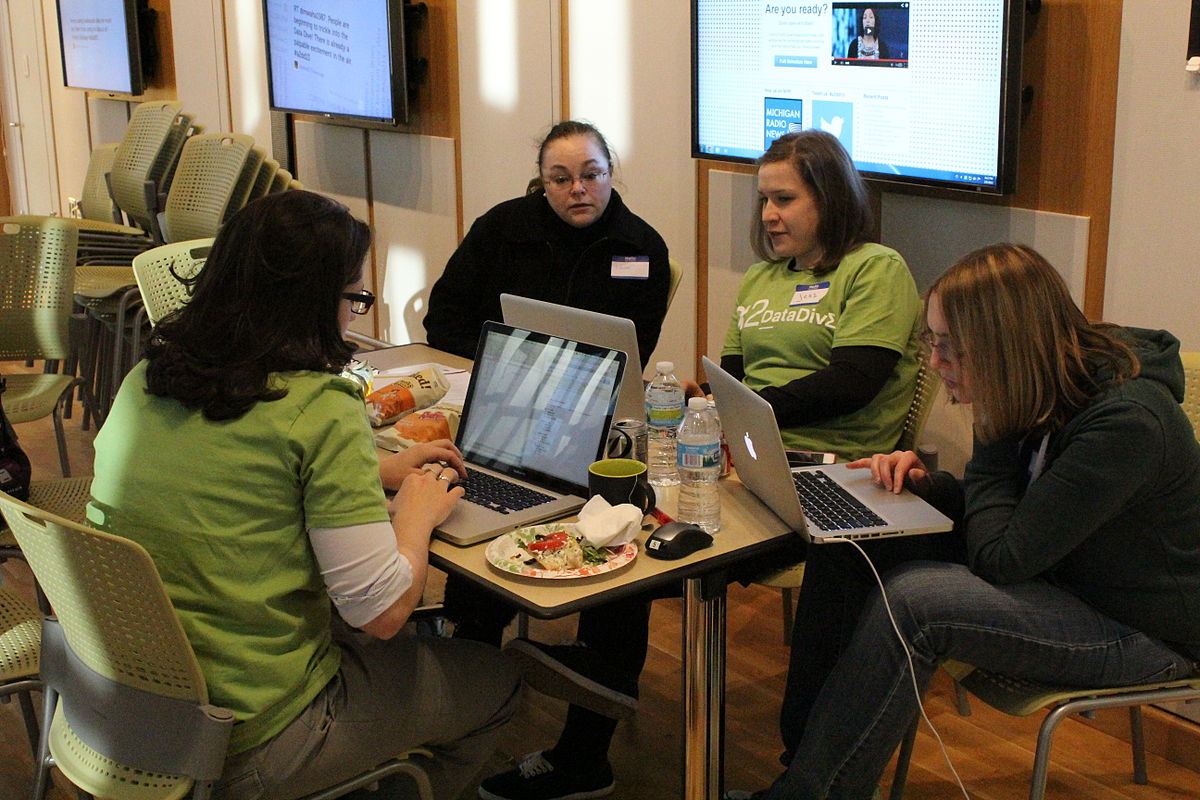Collaboration
Working in Groups
Mary Shier
Working in groups is a necessary and important skill. We will find ourselves having to work in groups in various situations—at home, at work, at play, and at school. When we find ourselves working in groups—whether in a formal or informal situation—certain things tend to happen. Often the natural leaders will emerge to provide guidance and direction, and those who are natural followers will act accordingly. Conflicts will inevitably occur, as people have different visions for the outcome.
Working in groups in educational settings is a common occurrence. Instructors often require group work because it is such an important skill, particularly moving forward into the workplace. Working on labs together, group project work, group assignments, even online group work with classmates who are all over the world, are all standard situations. Getting along is important, but working effectively together can make a better project when each team member contributes according to their strengths, resulting in a better project than each could have done on their own.

Working in groups has advantages and disadvantages and works better in some situations than others. Here are some reasons why you might choose to work alone or in a group:
| Working Alone | Working in Groups |
|---|---|
| Free to make all the decisions | Can collaborate |
| Can use your own methods | Can share responsibility |
| Can be creative | Can share ideas and talents |
| Can do things on own time schedule | Can spread the workload |
| No disagreements | A more sociable way to work |
| No compromising – can do everything your way | Able to do something bigger and better |
| Can take all the credit | Can demonstrate ability to work in teams |
Effective Working Groups

Groups that work effectively have the following characteristics:
- The atmosphere is relaxed, engaged, open, comfortable and non-threatening.
- Group members share a sense of purpose or common goals that each member is willing to work toward. The tasks or objectives are understood and accepted by everyone. There is free discussion leading to group commitment and no hidden agendas.
- The group is concerned not only with the task, but also with its own processes and operating procedures. The group periodically evaluates its performance.
- The group members use one another as a resource. Roles are balanced and shared to ensure that the tasks are accomplished and that group cohesion and morale are enhanced. The group comes up with clear assigned tasks for people in the group.
- Communication is clear, direct, open and honest. Group members continually try to listen to and clarify what is being said, and show interest in what others say and feel. They feel freedom to build on each other’s ideas. Differences of opinion are encouraged and freely expressed.
- The group focuses on problem solving rather than expending energy on competitive struggles or interpersonal issues. The group is willing to deal with conflict, and focus on it until it is resolved or managed in a way that does not reduce the effectiveness of the group and its members. Confrontation is accepted as a challenge to examine one’s behaviour or ideas. It is not viewed as an uncaring personal attack.
- Mistakes are seen as sources of learning rather than reasons for punishment. This encourages creativity and risk taking.
- Conflict is seen as natural, even helpful. People work through problems together.
- The group has a clear set of expectations and standards for the behaviour of group members.
- The group that understands developing a climate of trust is important. In order to trust one another, individuals in a group must understand and get to know one another.

Exercise: Groups
Think about some of the groups that you are involved in. What qualities do you have that helps in the group process? Is the group effective? What qualities of an effective team does your group have?
